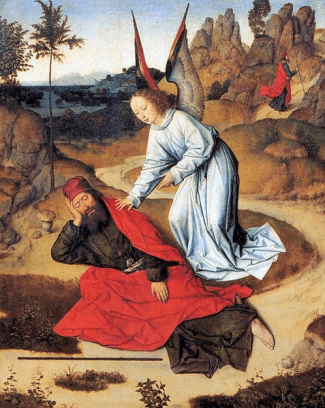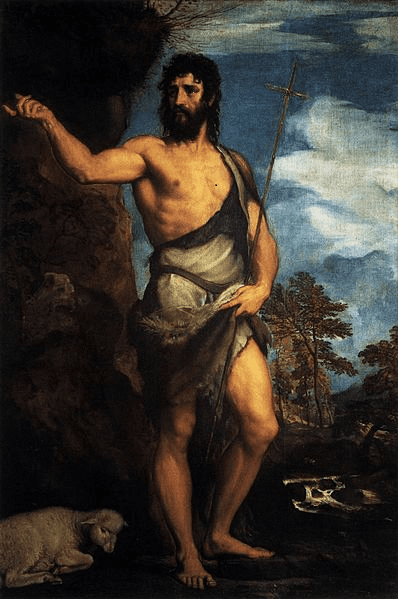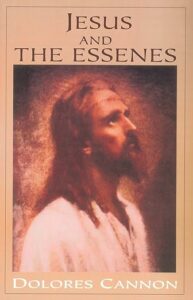Chapter 7.
Reincarnation as Revealed in the Bible
Note: BCE stands for Before the Common Era, that is, before the birth of Jesus of Nazareth, and CE stands for Common Era, which began with the birth of Jesus. The biblical scripture is from the New Revised Standard Version (NRSV) edition.
The non-physical, spiritual essence of a human being is generally referred to as a “soul.” It exists before it enters the body and lives on after the death of the body. “Reincarnation” (also called transmigration of the soul) is the process by which, at some point after a person’s biological death, the person’s soul begins another life as a newly born human. The soul sojourns in the spirit world between incarnations. Reincarnation is a central principle of major religious groups such as Hinduism, Buddhism, Sikhism, Jainism, and Jewish Mysticism, as well as other religions around the world. For general information about reincarnation, see the Reincarnation resource page.
Not many Christians know that reincarnation is acknowledged in biblical scripture—both in the Old and New Testaments. In the biblical context, the belief in reincarnation was restricted to human-to–human transmigration of the soul—not to other forms of life. This differs from some other traditions, such as Hinduism.
In the 1st century CE, there were three main active Jewish sects: Pharisees, Sadducees, and Essenes. The Pharisees and Essenes believed in reincarnation; the Sadducees did not. In scripture, Jesus criticized the teachings only of the Pharisees and Sadducees, which suggests that he may have been an Essene. The possibility that the philosophy of the Essenes inspired Jesus and influenced his teachings is historically defensible. He had ready access to the views of the Essenes throughout his life. Verification of this is found in Jesus and the Essenes by Dolores Cannon.
In this chapter, I discuss the evidence of belief in reincarnation in both the Old Testament (Hebrew Bible) and New Testament. The sections are as follows:
The Prophet Elijah and Reincarnation
According to the Book of Kings (1 Kings 17–19) in the Hebrew Bible (the Christian Old Testament), a powerful prophet named Elijah lived in the northern kingdom of Israel. He is described as leading a school of prophets. Perhaps he is best known as the harbinger of the Messiah—the future redeemer of the Jewish people. At the end of his life, “Elijah ascended in a whirlwind into heaven.” (2 Kings 2:11).
Prophesies of Elijah’s Return in the Hebrew Bible
Two later prophets, Issiah and Malachi, prophesized that Elijah would return to announce the imminent appearance of the Messiah. Thereafter, the Jews faithfully waited for Elijah to reincarnate.
Issiah
The book of Isaiah presents this oft-repeated prophesy:
-
- A voice cries out:
- ‘In the wilderness prepare the way of the LORD,
- make straight in the desert a highway for our God…’ (Isaiah 40:3)
This passage has been interpreted as prophesizing the return of Elijah to prepare the way.
Malachi
The book of Malachi announces the coming of a messenger to be the harbinger of the Messiah:
-
- See, I am sending my messenger to prepare the way before me. (Malachi 3:1)

Malachi later declares that it is Elijah whom the Lord will send:
-
- Lo, I will send you the prophet Elijah before the great and terrible day of the
- Lord comes,… (Malachi 4:5)
References to Elijah’s Return in the New Testament
The New Testament contains a variety of passages related to whether Elijah had returned as John the Baptist. These passages cannot demonstrate whether or not Elijah did return, but they do demonstrate that many Jews in Jesus’ lifetime believed that he could return.
Book of Luke
The book of Luke (1:13,15-17) describes the announcement by the Lord of the return of Elijah to Zechariah, who is to become the father of John the Baptist:
-
- Your wife Elizabeth will bear you a son, and you will name him John. …even before his birth he will be filled with the Holy Spirit. He will turn many of the people of Israel to the Lord their God. With the spirit and power of Elijah he will go before him, …to make ready a people prepared for the Lord.” [my emphasis] (Luke 1:13,15-17)
Book of Matthew
The book of Matthew (3:1-3) tells of the actual appearance of John the Baptist, the one prophesied:
-
- In those days John the Baptist appeared in the wilderness of Judea, proclaiming, “Repent, for the kingdom of heaven has come near.” This is the one of whom the prophet Isaiah spoke when he said,
- “The voice of one crying out in the wilderness:
- ‘Prepare the way of the Lord, make his paths straight.’” (Matthew 3:1–3)
- In those days John the Baptist appeared in the wilderness of Judea, proclaiming, “Repent, for the kingdom of heaven has come near.” This is the one of whom the prophet Isaiah spoke when he said,

Next, in Matthew (11:7-17), Jesus confirms the identity of Elijah as John the Baptist. Jesus, unmistakably and specifically confirms his identity:
-
- …Jesus began to speak to the crowds about John: “…What then did you go out to see? A prophet? Yes, I tell you, and more than a prophet. This is the one about whom it is written,
- ‘See, I am sending my messenger ahead of you,
- who will prepare your way before you.’
- Truly I tell you, among those born of women no one has arisen greater than John the Baptist; …For all the prophets and the law prophesied until John came; and if you are willing to accept it, he is Elijah who is to come. Let anyone with ears listen! ….” [my emphasis] (Matthew 11:7-17)
- …Jesus began to speak to the crowds about John: “…What then did you go out to see? A prophet? Yes, I tell you, and more than a prophet. This is the one about whom it is written,
Not only does Jesus make John’s identity clear in the preceding passage, but he reconfirms it in Matthew 17:10-13. Three disciples, Peter and James and his brother John, have just witnessed Moses and Elijah speaking with a luminescent Jesus, and the disciples ask Jesus about Elijah:
-
- …the disciples asked him, “Why, then, do the scribes say that Elijah must come first?” He replied, “Elijah is indeed coming and will restore all things; but I tell you that Elijah has already come, and they did not recognize him, but they did to him whatever they pleased. So also the Son of Man is about to suffer at their hands.” Then the disciples understood that he was speaking to them about John the Baptist. [my emphasis] (Matthew 17:10-13)
Furthermore, Matthew 16:13-14 demonstrates a general awareness of reincarnation by the people in Jesus’ time. Here Jesus questions his followers:
-
- Now when Jesus came into the district of Caesarea Philippi, he asked his disciples, “Who do people say that the Son of Man is?” And they said, “Some say John the Baptist, but others Elijah, and still others Jeremiah or one of the prophets.” (Matthew 16:13-14)
It is highly likely that the reason Jesus asked this question was because he believed in reincarnation and was teaching reincarnation to his followers by asking the question.
Book of John
The book of John (1:19-23) describes John the Baptist being interrogated by representatives of the Pharisees about his identity. John denies that he is Elijah, probably for several reasons, though he offers no explanation. However, the questions demonstrate that the questioners either believed in, or at least, knew about reincarnation:
-
- This is the testimony given by John when the Jews sent priests and Levites from Jerusalem to ask him, “Who are you?” He confessed and did not deny it, but confessed, “I am not the Messiah.” And they asked him, “What then? Are you Elijah?” He said, “I am not.” “Are you the prophet?” He answered, “No.” Then they said to him, “Who are you? Let us have an answer for those who sent us. What do you say about yourself?” He said,
- “I am the voice of one crying out in the wilderness,
- ‘Make straight the way of the Lord,’”
- as the prophet Isaiah said. (John 1:19-23)
- This is the testimony given by John when the Jews sent priests and Levites from Jerusalem to ask him, “Who are you?” He confessed and did not deny it, but confessed, “I am not the Messiah.” And they asked him, “What then? Are you Elijah?” He said, “I am not.” “Are you the prophet?” He answered, “No.” Then they said to him, “Who are you? Let us have an answer for those who sent us. What do you say about yourself?” He said,
John the Baptist may not have believed that he was the reincarnation of Elijah, but the fact that Jesus specifically identified him as Elijah should leave no doubt in the mind of the reader that John was Elijah. As cited above, “Now they had been sent from the Pharisees.” The Pharisees were asking questions related to reincarnation because the Pharisees believed in reincarnation.
Repression of the Belief in Reincarnation

As we have seen, two of the three active Jewish sects in the 1st century believed in reincarnation. The early Christian theologian Origen of Alexandria (184-253), who has been called the father of Christianity, also believed in reincarnation. One of Origen’s main teachings was the preexistence of souls and reincarnation. According to Origen, when God created the world, souls that had previously existed without bodies incarnated into bodies. He believed that the condition surrounding a person’s birth actually depended on what their souls did in their pre-existent state or previous life.
However, by the time the Roman Empire incorporated the catholic denomination of Christianity into the Roman Catholic Church, reincarnation had been thoroughly suppressed, and the people who believed in it were condemned as heretics. The Church considered the existence of reincarnation to be an abomination because it directly opposed its dogma of eternal damnation and eternal salvation. For most of its existence, the Church has employed manipulation and control to indoctrinate its followers, keeping them in the dark about reincarnation.
Today, the pattern of the repression of belief in reincarnation in the west has relaxed dramatically. This is mostly as a result of higher education of the population and easy access to abundant information and research. In the U.S., reincarnation is currently being recognized by an ever-growing segment of the Christian population. Based on 2021 data released by the Pew Research Center, 30% of Christians in the U.S. believe in reincarnation.

